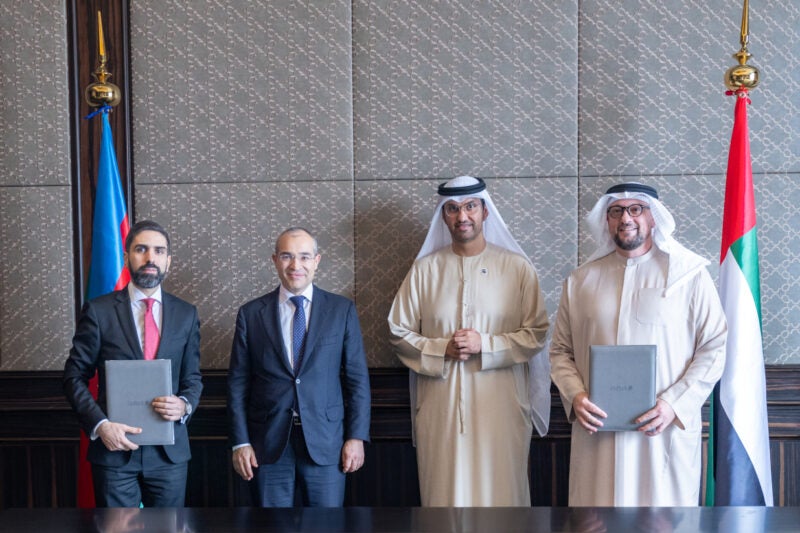
Masdar has signed joint development agreements with the State Oil Company of the Republic of Azerbaijan (SOCAR) to develop renewable energy projects with a combined capacity of 4GW in the Central Asian country.
SOCAR is an integrated national oil and gas company that supports Azerbaijan’s energy security.
As per the terms of the agreements, the UAE’s state-owned renewable energy company will develop integrated offshore wind and green hydrogen projects and onshore wind and solar photovoltaic (PV) projects.
The joint development agreements follow the implementation agreements between Masdar and Azerbaijan’s Ministry of Energy signed in June 2022.
Under the implementation agreement, the company agreed to develop a renewable energy programme on a bilateral basis, with a total capacity of 10GW across several technologies in the country.
The joint development agreement lays down collaboration and partnership principles to develop the first phase of the renewable energy programme.
Azerbaijan aims to generate 30% of its domestic power requirements from renewable energy sources by 2030 as a part of the Central Asian country’s mission to diversify its economy and mitigate greenhouse gas emissions.
UAE Minister of Industry and Advanced Technology and Masdar chairman Sultan Ahmed Al Jaber said: “These agreements will serve to strengthen the already powerful relationship between the United Arab Emirates and the Republic of Azerbaijan, and are a testament to our shared commitment to diversifying our energy mix and developing low- and zero-carbon solutions.
“As global leaders gather here in the UAE for Abu Dhabi Sustainability Week, we are demonstrating the power of partnership and cooperation in advancing the inclusive energy transition and I look forward to seeing more announcements being made at ADSW.”
The clean energy company is also developing the 230MW Garadagh solar PV plant in Azerbaijan.
The project is expected to generate 500 million kilowatt-hours of electricity per annum, which is adequate to meet the power requirements of over 110,000 households.
It is also anticipated to mitigate emissions by more than 200,000 tonnes per year.






